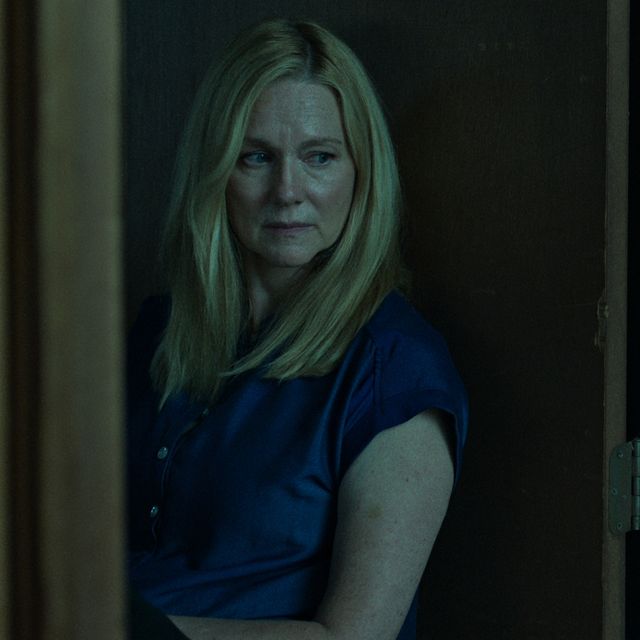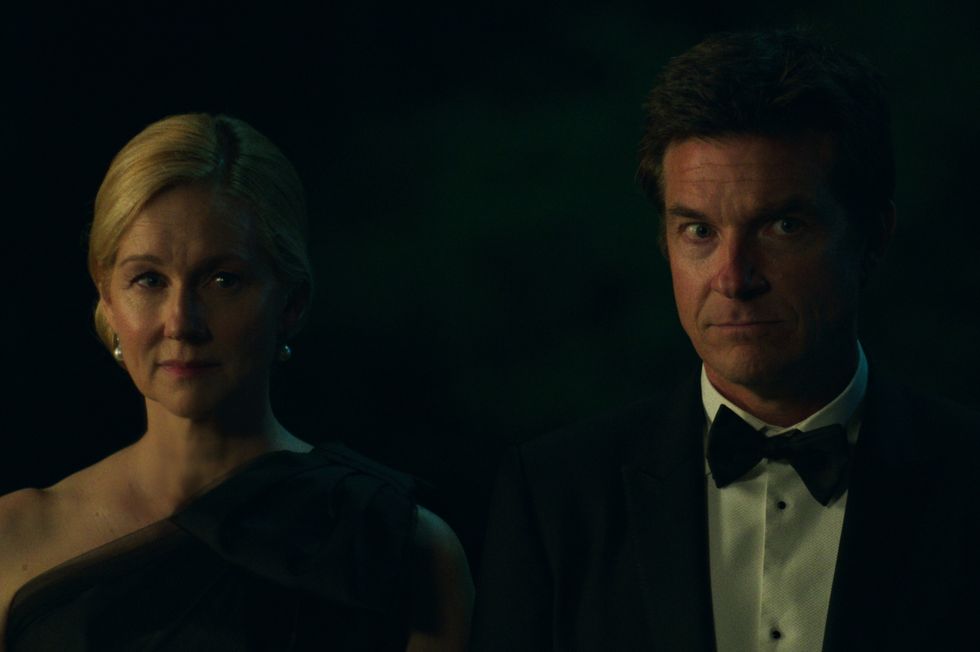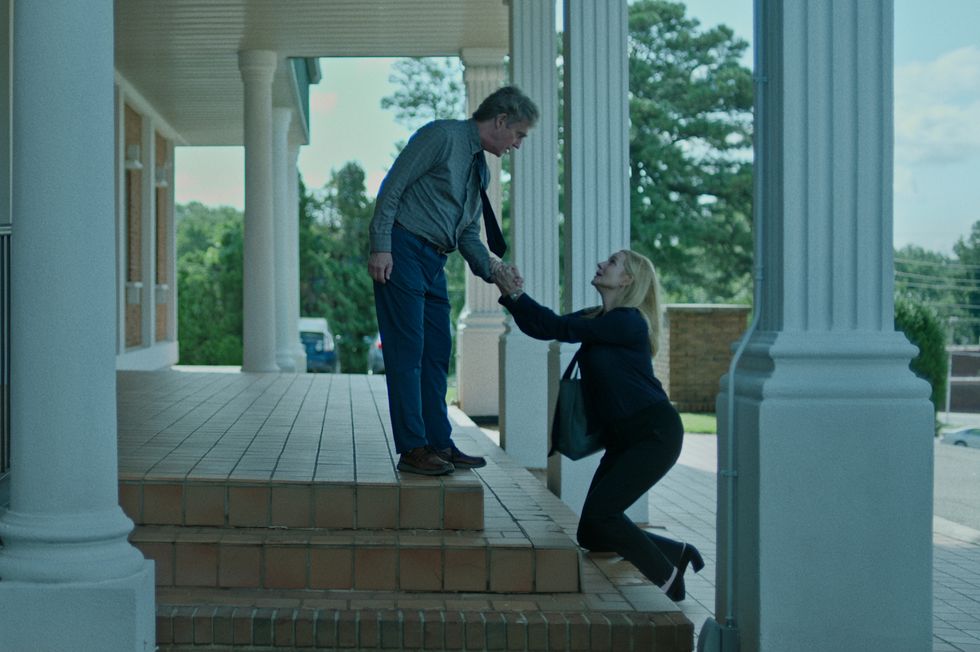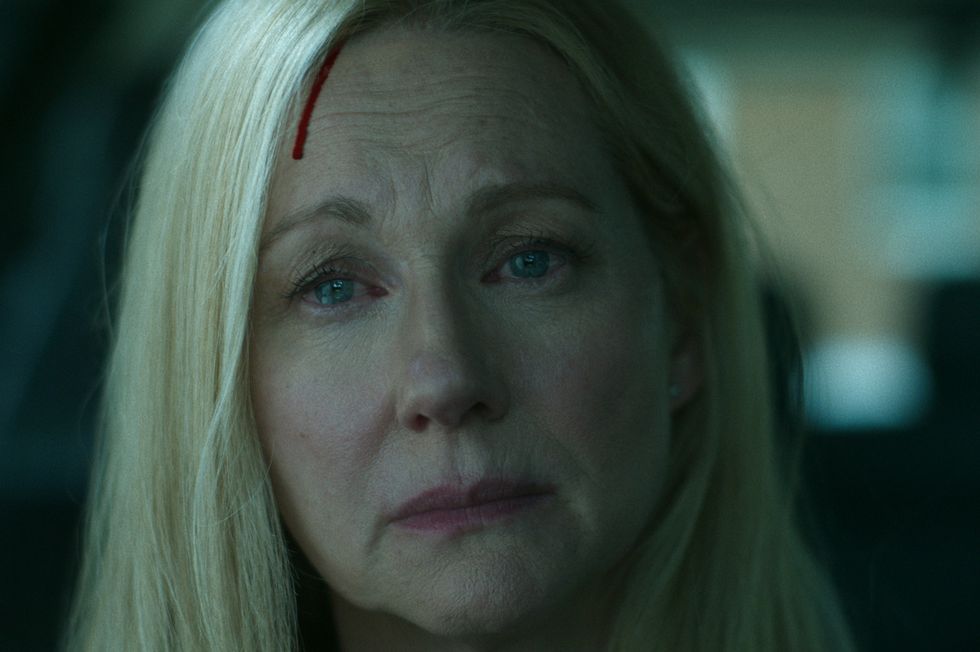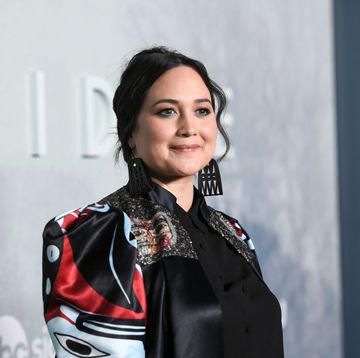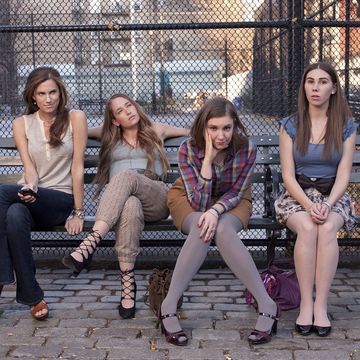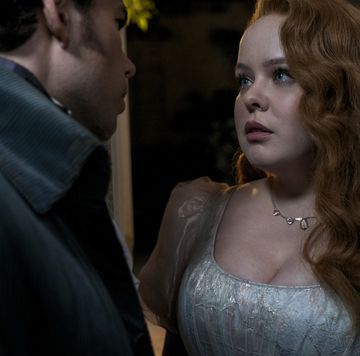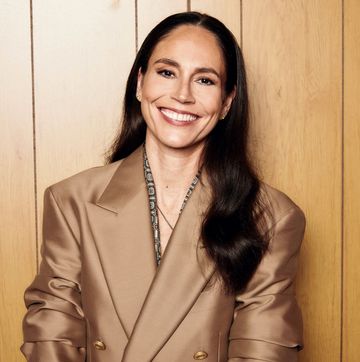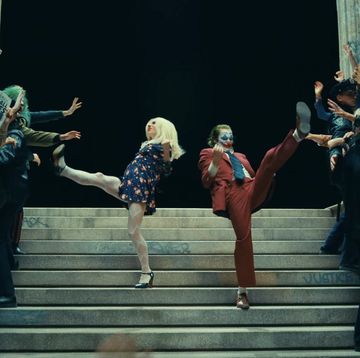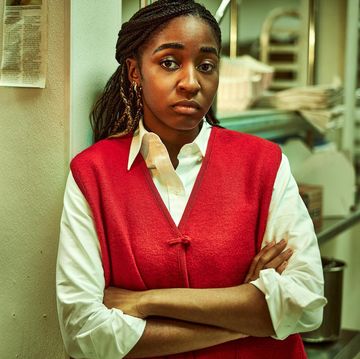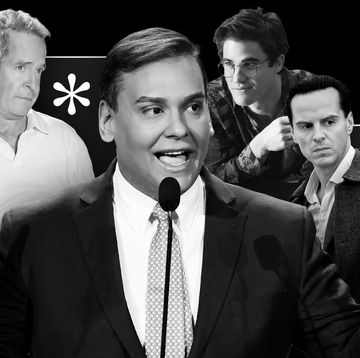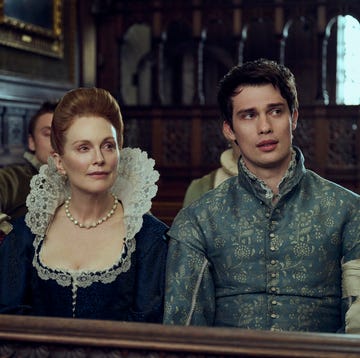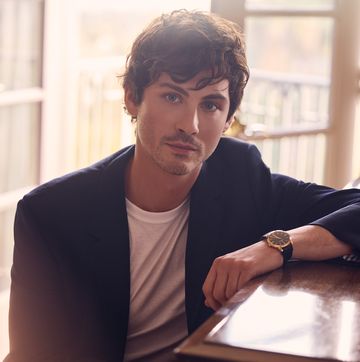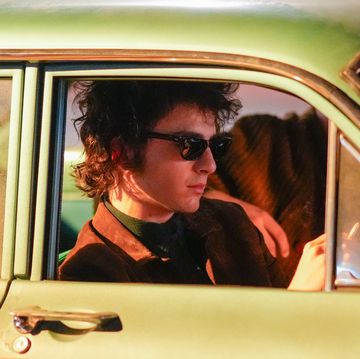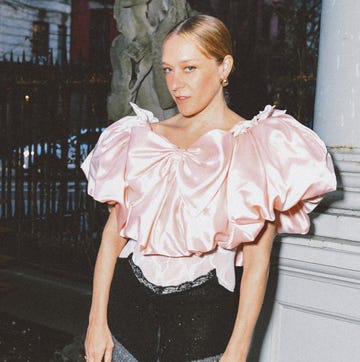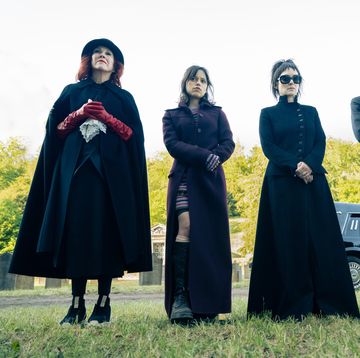The series finale of Ozark may not have been the ending we wanted, but when has the drama's central Byrde family ever cared about what anyone else wants? (Unsurprisingly, spoilers for the finale of Ozark follow. Surprisingly, so do spoilers for the 2004 finale of Frasier.)
Ever since Netflix first introduced us to Marty and Wendy Byrde, played by Jason Bateman and Laura Linney, a couple who move their family to the Ozarks to launder drug cartel money under fluctuating states of duress and perverse enthusiasm, we've watched them cut a devastating swath through the lives of everyone they've come across. And as their collateral damage spread across their new home like a cancer, so, too, has the corrupting influence of their actions spread within their family.
By the show's final moments, the Byrdes and their two teenage children have all been parties to myriad murders—the most significant of which hit viewers like a sucker punch, when Ruth Langmore (Julia Garner), a local caught in the Byrdes' web more inexorably than anyone, is shot down by a cartel leader newly propped up by Marty and Wendy.
What makes Ruth's death so hard to stomach isn't just that she was a fan favorite among audiences or that she almost makes it out of the show's four seasons alive. It's that the Byrdes not only survive, but seem to get government immunity and political power, and help their friends (a ruthless cartel matriarch, a morally dicey FBI, and the show's in-universe version of the real-life Sackler family) in the process. This last act unfolds somewhat like the mirror opposite of Breaking Bad, a series to which Ozark has often been compared. What if Jesse Pinkman had died and Walter White not only survived, but was rewarded at the end of his moral descent with everything he'd ever wanted?
The answer is in the final line of the show, a stark reminder that the real world is no fairy tale: When the Byrdes are confronted by a private eye who's been on their trail, he says, "You don't get to win … the world doesn't work like that." Wendy coolly responds, "Since when?" He doesn't survive the interaction.
In the wake of Ozark's finale, Linney talks to BAZAAR.com about playing Wendy Byrde in all her complexity, the inevitability of the show's controversial ending, and her part in the final episode of another iconic series—yes, Frasier.
Wendy has two lines that seem to sum up the direction of Ozark's finale episodes. In the first of those episodes, she says to Marty, "After all this and you still don't understand people's will." And then, of course, she closes the last episode with its haunting last line. How did those lines encapsulate the experience of playing Wendy in this last act?
Well, the series is so much about just survival. Narratively, what's pushing them all is a primal sense to survive—and for Wendy, not just to get to the other side, but to get to the other side rewarded. She's a wildly complex character, and what's fun about her is that you can't quite figure her out. Is she sociopathic or just emotionally immature? The "authentic" part of her is hard to pin down, which gave me a lot of leeway and a lot of room in which to have fun.
The "Since when?" line says a lot about where we all are in the world right now, and the confusion that it elicits in people who have grown up with a certain idea about how things function or how things should function, who then see the reality of what we're seeing happen in real life.
I didn't want to see her win, and I never want to see someone like her win in real life, yet I loved watching her win. And I hate myself for it!
I know, I know, she's despicable! I know she is. And she's also shrewd, single-minded, rabid, and immature. It's fun to watch all of these characters feel so justified in their actions, which I think is where things get confusing for people.
The introduction of Wendy's abusive father as a more central character this season illuminated dysfunction and, as you said, emotional immaturity, at the core of a certain type of corrupt narcissist.
It's the experience of seeing where people who have gained positions of power come from. You think, "Oh, that makes sense."
There's a devastating scene where Wendy pleads on the courthouse steps after he succeeds in taking her children away. We see her literally on her knees pleading. How did you tap into such a jarringly different side of Wendy?
I think when you know a character deeply and you've made very specific choices and decisions along the way, there's sort of no other way to play things. For big scenes like that, you're aware that it's a big, emotional scene, so you just have to trust that you've done the work and that it'll play out as it's meant to play out.
None of us wanted to see Ruth die. Even showrunner Chris Mundy says he agonized over the decision. Yet, it felt like the only realistic possibility. How do you strike the balance between what we may want as viewers, but what the authenticity of the story more or less demands?
We wanted to tell the story as fully and honestly as we could with the time that we were given to tell it. You don't want it to fall apart, you don't want to overplay it; you just want it to be true to itself. I wanted that for Chris Mundy, who's also our head writer and showrunner. He does not get the credit that he deserves—he's the one who shepherded us through the entire thing. More than anything, I just wanted him to feel good about how it went out.
You made your directorial debut in one of this season's episodes. How did that come about?
That is all Jason Bateman's fault. Jason and our producer Patrick Markey had been pushing me—really, harassing me!—to direct since Season 1. And I always politely said no thank you. But as the last season came around, they finally made me do it, and I'm so glad they did.
People over time have suggested that I should consider it, but to be honest, I just love acting, and I've never wanted to take away from that. But my hand was forced! And I was surrounded by a crew who really had my back. The fact that my crew knew me as well as they did was an enormous advantage for a first-time director. I did not take any of that for granted. And in the end, no one threw tomatoes at me, so I think I did okay.
Wendy's character consistently subverted expectations from the very beginning of the series, when she not only submitted to her family's new life, but embraced it and later spearheaded it. Looking back, was there a point in the series where the path before Wendy began to reveal itself to you?
Absolutely. It was a very specific moment in Season 1, where I twirl a dead possum and throw it on top of a trailer. I thought, "Why isn't she afraid to handle a dead possum? How does a soccer mom from Chicago even know how to maneuver a possum and fling it?" In that same vein, how does she know how to talk to all these people who are culturally so far away from her?
And then I realized, "Oh, she's not from Chicago. She's closer to them in background than anybody realizes." She's basically one of them. She's tried her whole life to get away from it, but now she's wrapped back up in the kind of culture she grew up in. That was a real penny-dropping moment. So I went and talked to Chris Mundy about it, and so we took it from there.
You've had a career of playing such diverse characters. From The Big C to The Savages to Love Actually to Mystic River, your choice of roles has consistently broken you out of any box that the previous role might have put you into. Do you relish playing someone like Wendy, who is so hard to define?
It's just fun to really dig deeply into something. Especially when it's a character so well written and part of a dynamic ensemble. No one is one thing; people are complicated and actors are complicated. I think it's so funny how people limit an actor into what they think their range is. I encounter it over and over and over again. But more than likely, if there's a good actor, their range is really wide. They just haven't been allowed to show it yet.
That's why it was also so exciting to watch Jason do this. He's been so successful in the area that he excels in and has been known for, and now to see him branch out into something so different has been amazing.
Speaking of iconic characters—and iconic series finales—you were a part of the final season of Frasier as Charlotte, a matchmaker who Frasier leaves Seattle for when she moves away. In the show's final scene, he's on a plane to Chicago, planning to profess his love for her.
Wasn't it amazing? For little old me! I couldn't believe it. I still can't believe it!
The Internet has been newly obsessed with Frasier, and there are always whispers of a reboot. Has this reached your attention?
It has not. But I'm happy to hear it!
If we're going to see where Frasier ends up, it sounds like someone should give you a call!
I'd love that. Let's see. Let's see what happened to good old Charlotte.
This interview has been edited and condensed for clarity.

Nojan Aminosharei is the Entertainment Director of Men’s Health and the Special Projects Editor of Harper’s Bazaar. He was previously the Entertainment Director of Hearst Digital Media, and before that a Senior Editor at GQ. Raised in Vancouver, Canada, Nojan graduated from NYU with a master’s degree in magazine journalism. The late Elaine Stritch once told him, “What the fuck kind of name is Nojan? I’m 89 years old, I don’t have time for that shit.”
